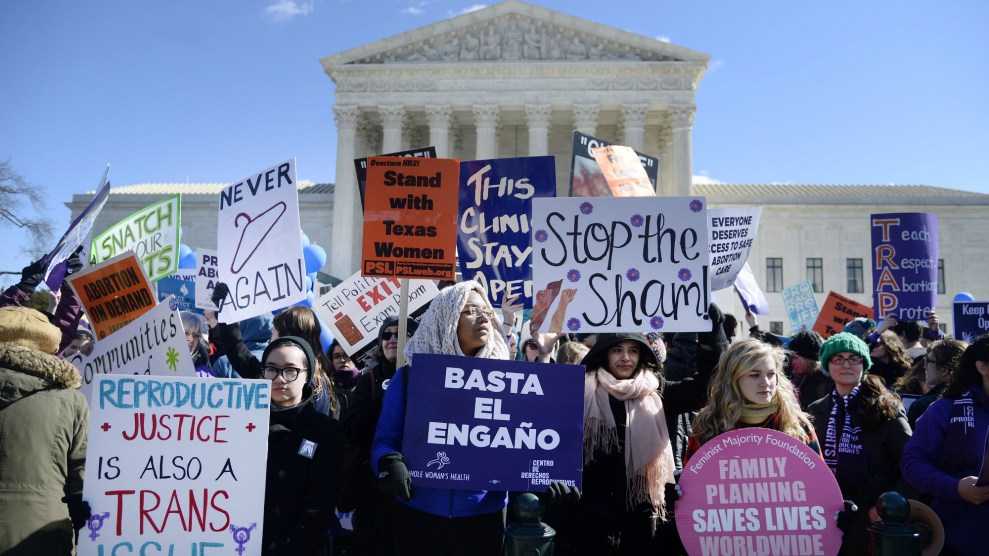
Protestors rally outside of the Supreme Court on March 2, 2016 during oral arguments in the Whole Woman's Health v. Hellerstedt case.Douliery Olivier/Sipa via AP Images
On Tuesday, the American Civil Liberties Union sued the Food and Drug Administration over the agency’s restrictions on medication abortion. The lawsuit, filed in a U.S. District Court on behalf of a Hawaii doctor and several health care associations, specifically targets a restriction on mifepristone, a common drug used in medication abortion.
Medication abortion involves two drugs, mifepristone and misoprostol. The FDA’s current rules, implemented in 2007, only allow mifepristone to be dispensed at a medical facility, like a doctor’s office or a clinic. By contrast, misoprostol is available at pharmacies with a prescription. Dr. Graham Chelius, a family medicine doctor in Hawaii and a plaintiff in the suit, says that the mifepristone restriction has made it nearly impossible for patients in rural Hawaii to access the procedure at all. That’s because, he says, some hospitals in the state, including his own, don’t stock mifepristone.
“Because of the FDA’s restrictions,” said Chelius in a press release, “my patients are forced either to fly to a different provider on another island—resulting in serious delays—or to carry a pregnancy to term against their will.” According to the lawsuit, carrying a pregnancy to term poses a risk of fatality that is fourteen times greater than taking Mileprex, the brand name for mifepristone.
“The FDA restrictions harm patients by delaying time sensitive healthcare, imposing needless costs, and blocking some women from accessing abortion at all,” Julia Kaye, a staff attorney with the ACLU’s Reproductive Freedom Project, told reporters.
More than a third of people who choose to end their pregnancies use medication abortion to do so, according to the Guttmacher Institute.
Chelius and the ACLU are hoping to overturn the FDA rule, which would then allow patients to pick up prescriptions for mifepristone at their local pharmacy and expand access to the procedure for low-income and rural women.
“This case is about where a woman is standing when the pill is handed to her,” says Kaye. “This is about abortion stigma, not science.”
















